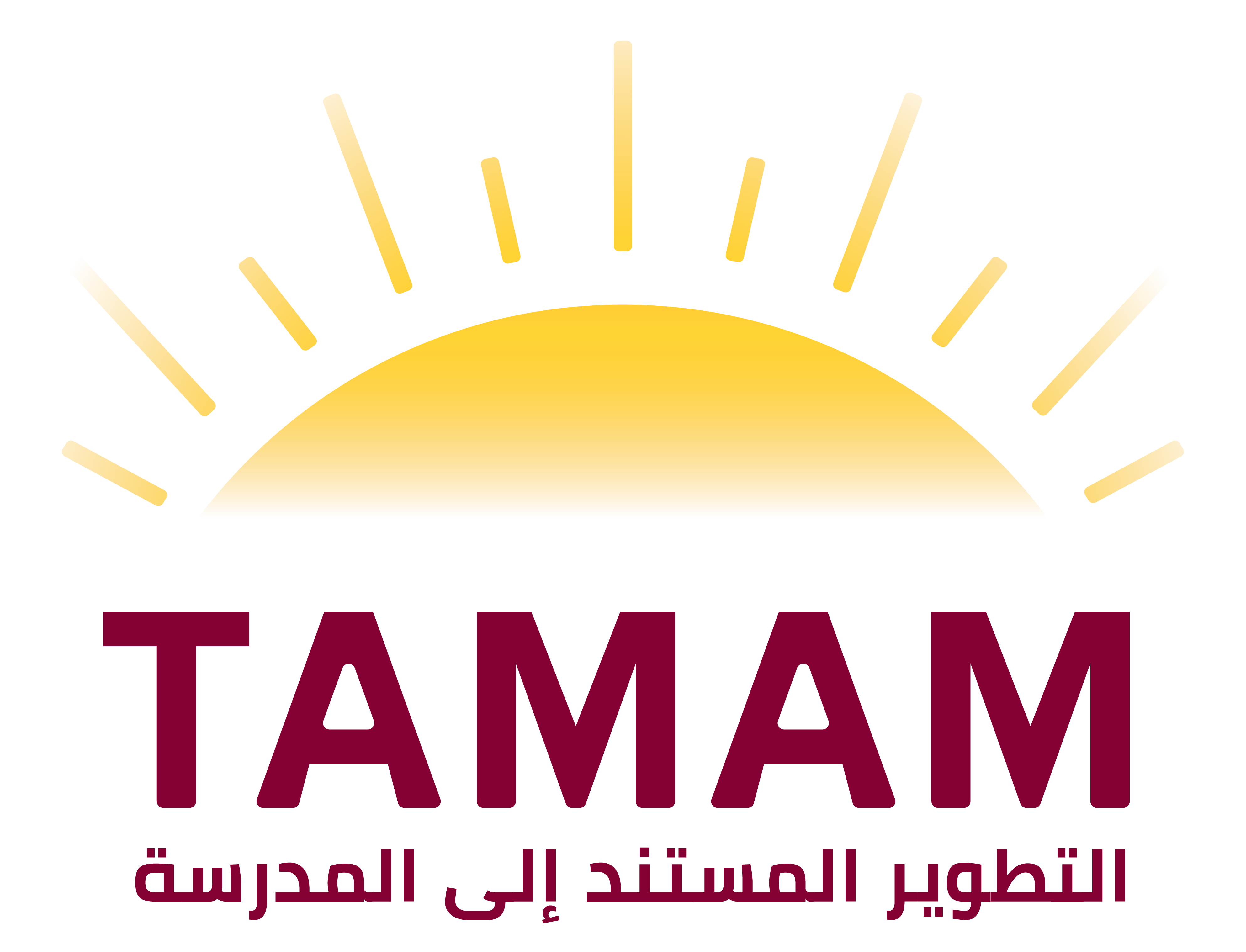After the conclusion of TAMAM project’s first phase, an evaluative case study was conducted to assess the impact its Capacity Building Model had on the professional learning of a participating school team. This case study was conducted in Al-Asriyya School, one of the TAMAM project’s pioneer schools. Its purpose is to specifically investigate the following research questions: (1) to what extent and in what ways did Al-Asriyya School TAMAM team members acquire new Competencies or enhance old ones?; (2) to what extent and in what ways did Al- Asriyya School TAMAM team members apply the newly acquired Competencies or the enhanced old ones?; and (3) to what extent and in what ways can that learning be attributed to the Al-Asriyya team’s participation in the professional learning experiences of TAMAM? The report presents the results of this study and reveals the aspects of TAMAM’s Capacity Building Model that contributed to this learning and those that failed to do so. It also highlights the cultural peculiarities affecting the team’s acquisition and application of knowledge, skills and attitudes associated with TAMAM’s 11 Competencies. This study finds its evaluation criteria in the TAMAM 11 Competencies along with their detailed elements and evaluative rubric (TAMAM’s Master Rubric). Two sets of longitudinal data were collected in 2007 and 2012 respectively for the purpose of the study through field visits, focus group and individual interviews with the school team and the project Steering Team (PST) members; and through the examination of school reports and field observation notes that document the learning experience of the Al-Asriyya team over the span of four years. Comparisons between the 2007 and 2012 performance levels led to conclusions about the level of growth of the Al-Asriyya team members’ knowledge, skills and attitudes. Results show that the Al-Asriyya team members showed varied levels of performance and growth in the knowledge, skills and attitudes of every competency. These results are mainly due to the design of TAMAM’s Capacity Building Model, a triggered paradigm shift in the members’ professional habits, beliefs and practices. The study concludes with insights and lessons learned for effective school improvement practices, improving the learning and coaching experiences in TAMAM, designing professional learning experiences in the context of Arab schools and accumulating a relevant knowledge base in this context.
View full text below
Technical Report 6: Evaluating the TAMAM Impact: The Case of Al-Asriyya School – By Rima Karami, Rasha ElSahali ElHage, & Samaya Mansour, with Rola Katerji & Diana Sarieddine,– 2016